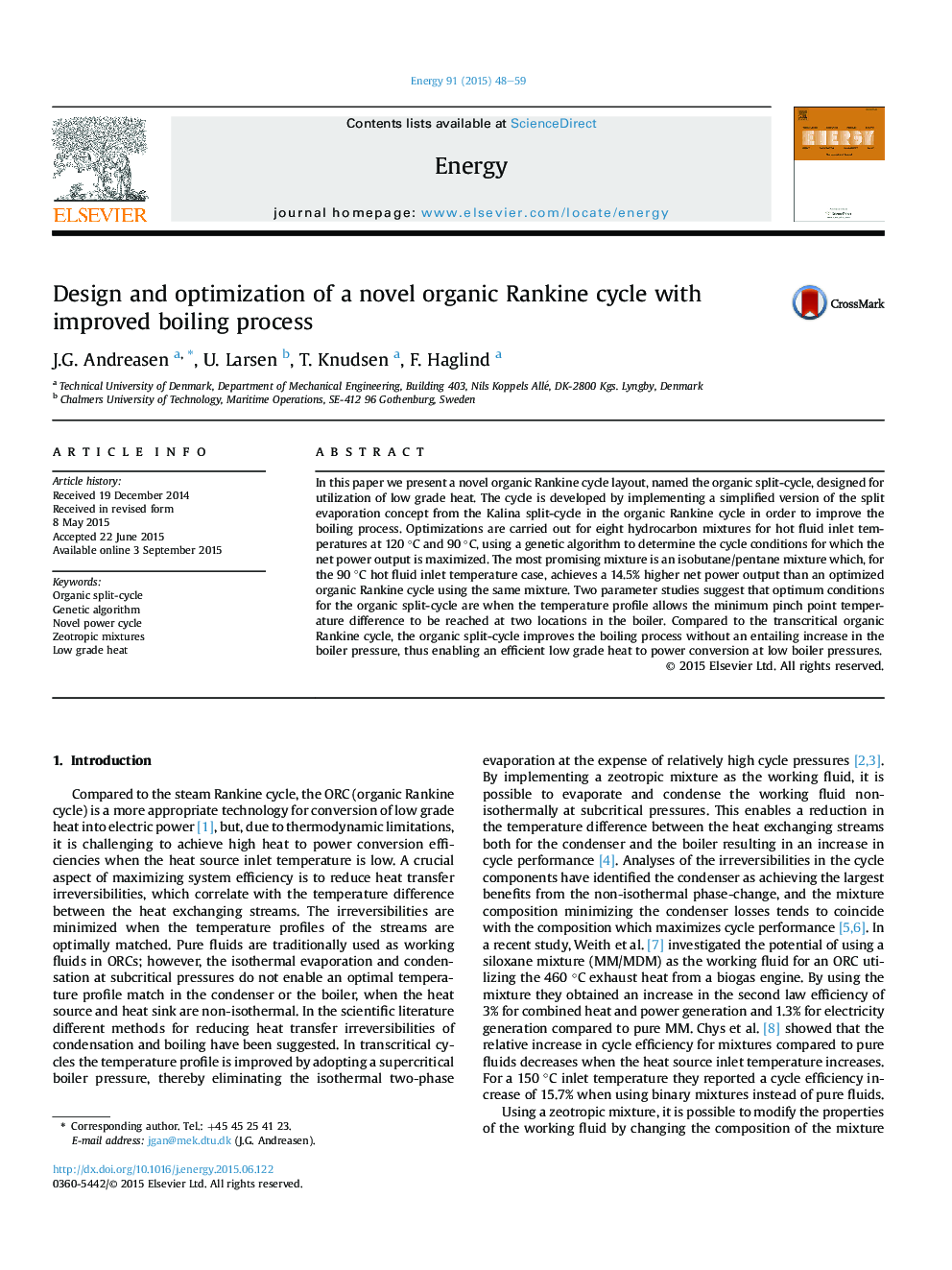| Article ID | Journal | Published Year | Pages | File Type |
|---|---|---|---|---|
| 1731470 | Energy | 2015 | 12 Pages |
•Thermodynamic analysis of a novel organic Rankine cycle layout.•Heat transfer analyses based on heat exchanger UA-values.•Increased net power output for the novel organic Rankine cycle.•The most promising mixture is an isobutane/pentane mixture.
In this paper we present a novel organic Rankine cycle layout, named the organic split-cycle, designed for utilization of low grade heat. The cycle is developed by implementing a simplified version of the split evaporation concept from the Kalina split-cycle in the organic Rankine cycle in order to improve the boiling process. Optimizations are carried out for eight hydrocarbon mixtures for hot fluid inlet temperatures at 120 °C and 90 °C, using a genetic algorithm to determine the cycle conditions for which the net power output is maximized. The most promising mixture is an isobutane/pentane mixture which, for the 90 °C hot fluid inlet temperature case, achieves a 14.5% higher net power output than an optimized organic Rankine cycle using the same mixture. Two parameter studies suggest that optimum conditions for the organic split-cycle are when the temperature profile allows the minimum pinch point temperature difference to be reached at two locations in the boiler. Compared to the transcritical organic Rankine cycle, the organic split-cycle improves the boiling process without an entailing increase in the boiler pressure, thus enabling an efficient low grade heat to power conversion at low boiler pressures.
